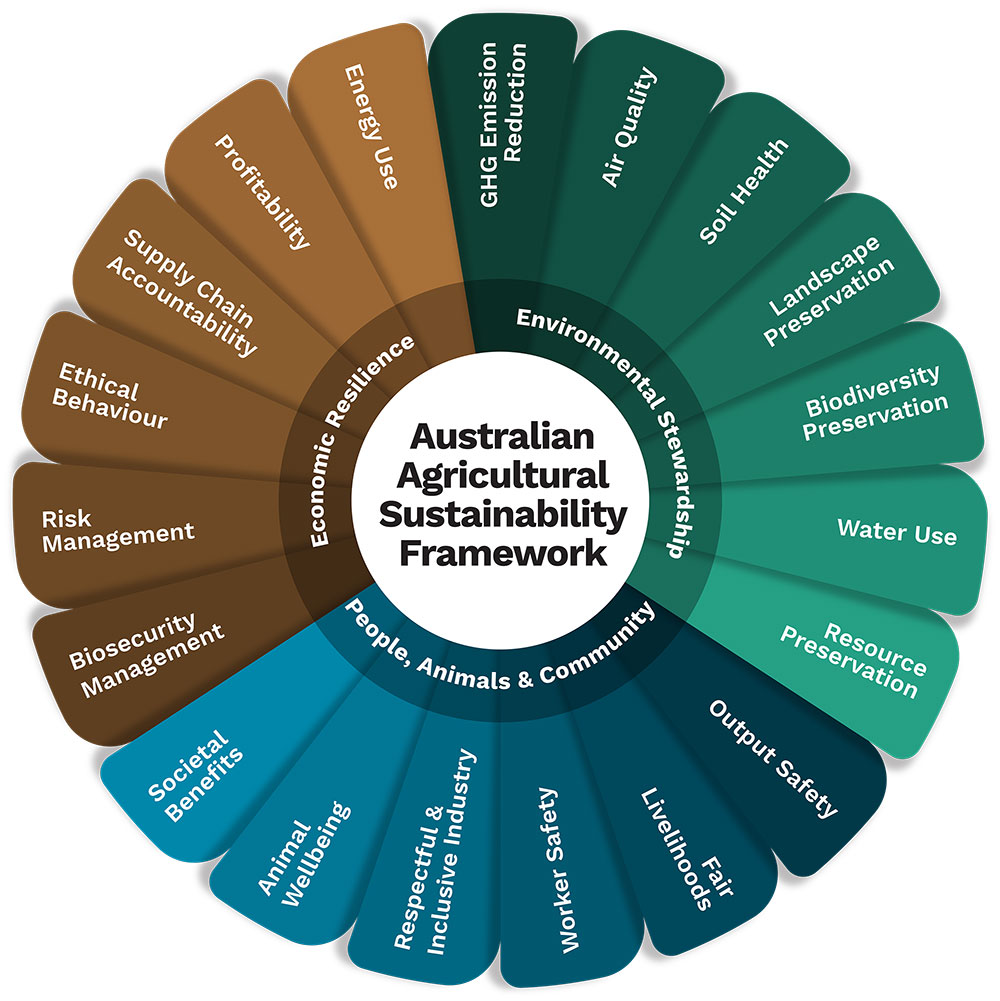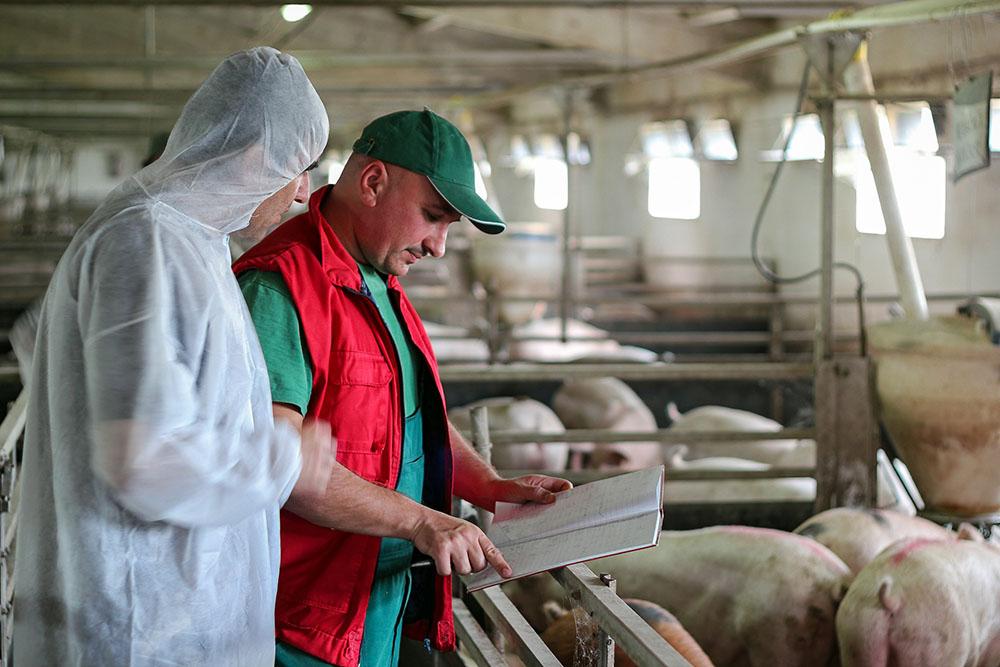National Farmers’ Federation
Animal welfare is a critical aspect of sustainable agriculture, ensuring the ethical treatment of animals and supporting the health and productivity of livestock. It also impacts social licence to operate and trade, and is critical in meeting the increasing consumer demand for ethically produced food.
The Australian Agricultural Sustainability Framework (AASF), which incorporates animal welfare, is an initiative led by the National Farmers’ Federation (NFF) and supported by the Australian Government and a range of delivery partners, including the Australian Farm Institute and CSIRO. Initiated in 2020 and updated in 2025, the AASF establishes clear sustainability objectives by considering the connections between environmental stewardship, people, animals and community, and economic resilience.
The AASF was developed based on a scan of international and domestic sustainability initiatives, followed by consultation with more than 1,300 stakeholders. A community of practice forum plays a pivotal role in encouraging cross-commodity collaboration and problem-solving. The forum’s 300 members work together to improve sustainability practices across the agricultural supply chain.
The framework is designed to be flexible and adopted across various commodities and supply chain stages. It contains a common set of principles that all organisations can use as a guide to reporting against their sustainability objectives. Principle 12 focuses on 3 animal welfare criteria related to: on-farm husbandry, safe transportation and humane end-of-life procedures. This principle assists in the streamlining of international and domestic initiatives for farmers and other stakeholders, resulting in more consistent animal welfare sustainability.
While the AASF is still maturing it has demonstrated a range of benefits:
- Stakeholders have access to a consistent understanding of agricultural sustainability in Australia through the collaborative process
- The framework provides an accessible and trusted source of information, utilising a three-tiered approach tailored to the current level of sustainability ambition of organisations
- Assisting to build a more standardised approach to reporting and evidence showcases Australia’s commitment to sustainability and highlights current practices, helping to maintain the country's reputation as a leader in sustainable agriculture
- The framework offers targeted advice on how it can be aligned with existing data collection and reporting across the supply chain, along with a new data ecosystem project aimed at reviewing governance and data-sharing arrangements to improve accessibility and reduce the burden of data collection.
Learn more about the Australian Agricultural Sustainability Framework.
Acknowledgements
The department thanks the National Farmers’ Federation (NFF) for the provision of the case study. Thanks also to Whereto Research for their support in coordinating input.




